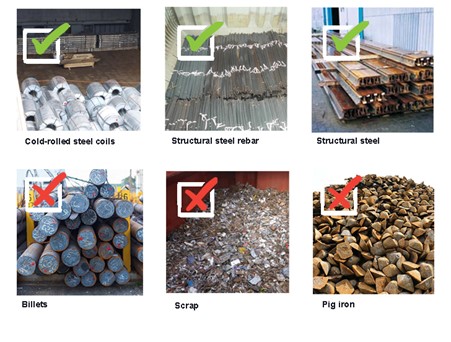For our mutual Members, Gard covers the cost of pre-load steel surveys (after any contribution from charterers). Only finished steel cargos justify the costs. We outline in this article the type of cargo that is covered by the pre-load recommendation.

Pre-load steel surveys – recommended only for finished steel products
Written by

Alexandra Chatzimichailoglou
Senior Claims Adviser, Lawyer
Published 10 November 2021
As a general guideline, the Club will cover the costs involved in owners’ entries pre-loading survey on finished steel products. Accordingly, it is normally recommended that pre-loading surveys be carried out on the following products:
Hot rolled steel in coils or bundles
Cold rolled steel in coils, packs or bundles
Galvanized steel
Stainless steel
Tin plates
Wire rods
Steel pipes
Structural steel (rebars, channels, angles, beams, bars, strips, sections, forgings)
However, certain low-value and semi-finished products, such as those listed below, normally do not require a pre-loading survey because these products must be processed further before use:
Steel billets
Steel blooms
Steel slabs
Steel scrap
Steel swarf
Pig iron
Typical cargo recommended for pre-load survey and those that are not, are illustrated below.

Cargoes
Nevertheless, if despite the Club’s recommendation a member wishes to have a pre-loading survey of any of the above low-value and semi-finished steel products carried out, the Club may assist with the arrangements, but the costs of the survey will be for the member’s own account.
It should be noted that the mere failure to carry out a pre-loading survey on finished steel products does not prejudice the P&I cover. However, P&I cover may be prejudiced if the master or the member knows that the bill of lading, waybill or other document evidencing the contract of carriage contains an incorrect description of the cargo or its quantity or its condition. Consignees/receivers of cargo are entitled to rely on the description in the bill of lading and may claim for damage or shortage based on description of the order and condition as stated in the bill of lading.
Finally, there are occasions when it makes sense for an owner to agree with a time charterer to share the costs of a pre-loading survey on a 50/50 basis. Generally, the Club does not have a problem with this, and it may be a good solution from a cost perspective if there is a sound on-going commercial relationship between owners and charterers. However, it is appropriate to warn owners against agreeing to share the costs of a pre-loading survey with voyage charterers for the obvious reason that voyage charterers will quite frequently have a very close commercial relationship with the shippers, with the result that disputes over remarks in mate’s receipts and clausing of bills of lading can easily occur.


